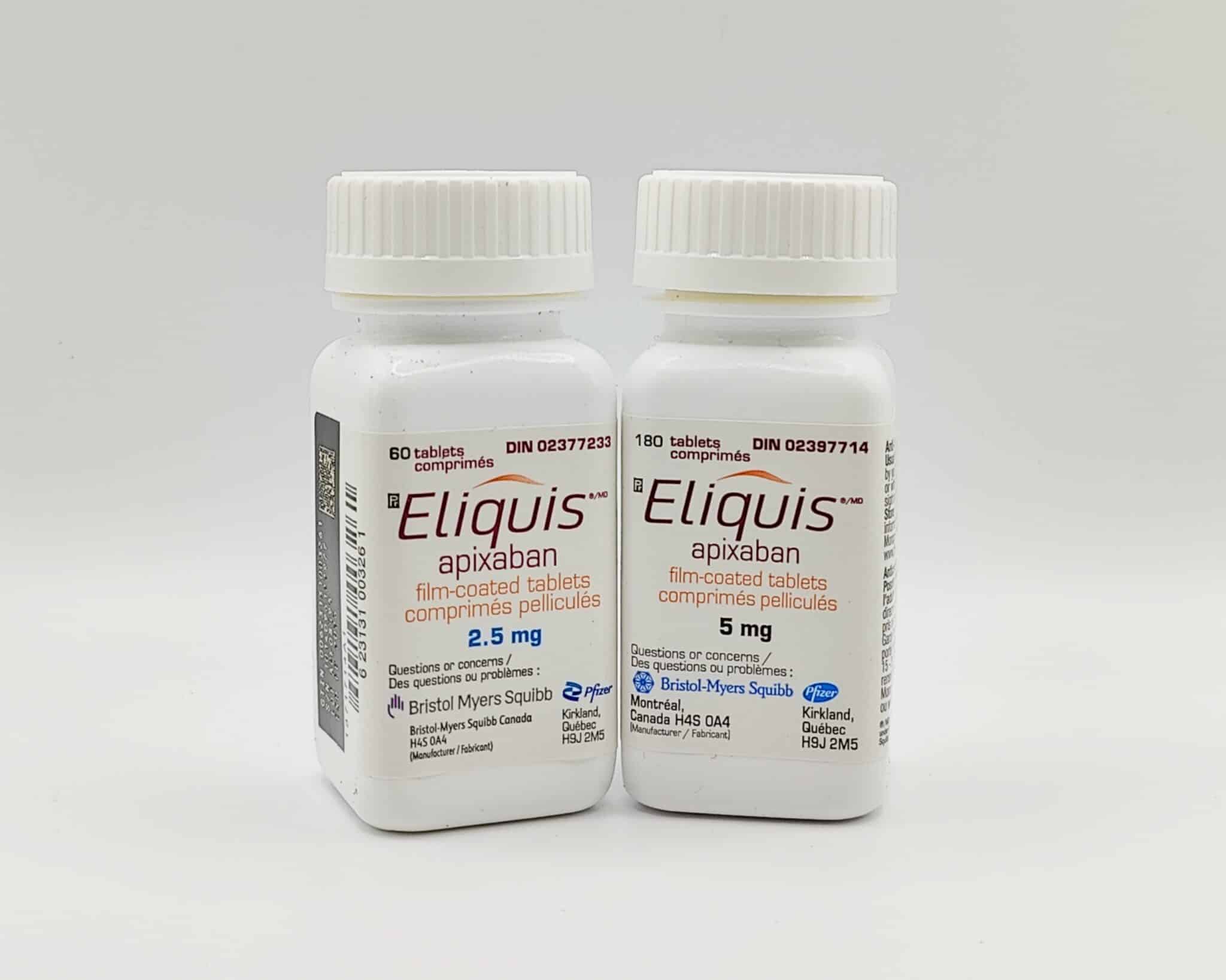Can I Drink Alcohol While Taking Eliquis? Debunking Myths and Understanding the Risks
Can I Drink Alcohol While Taking Eliquis? Debunking Myths and Understanding the Risks
- Todd P
Eliquis (apixaban) is a commonly prescribed blood thinner that helps reduce the risk of blood clots and strokes. It is widely used for conditions like atrial fibrillation, deep vein thrombosis, and pulmonary embolism. Many patients wonder if it’s safe to consume alcohol while taking this medication, as alcohol is known to have effects on blood clotting and liver function. While drinking alcohol isn’t strictly prohibited for most patients on Eliquis, there are important factors to consider to avoid adverse effects. Understanding these risks and guidelines is crucial to safely managing your treatment. This guide explores how alcohol interacts with Eliquis, the potential risks, and tips for staying safe while balancing your health and lifestyle.
How Does Alcohol Interact with Eliquis?
Eliquis works by inhibiting Factor Xa, an enzyme involved in blood clot formation. By thinning the blood, it reduces the risk of dangerous clots but also increases the risk of bleeding. Alcohol can compound this effect, as it has blood-thinning properties of its own. Additionally, alcohol can irritate the stomach lining, potentially increasing the likelihood of gastrointestinal bleeding.
Why Alcohol Can Be Risky with Eliquis
1. Increased Bleeding Risk
Alcohol interferes with the body’s ability to clot, and when combined with Eliquis, this effect is amplified. This can lead to an elevated risk of internal bleeding, including serious conditions such as brain hemorrhages or gastrointestinal bleeding. Even small cuts or bruises may take longer to heal when alcohol and Eliquis are combined.
2. Stomach Irritation
Regular or heavy alcohol consumption can irritate the stomach lining, increasing the risk of ulcers or gastrointestinal bleeding. Since Eliquis also heightens the risk of bleeding, the combination of the two can pose a significant danger to the digestive tract.
3. Impaired Judgment
Alcohol affects decision-making and awareness, making it harder to recognize or act on symptoms of serious bleeding. For example, prolonged bleeding, severe headaches, or black stools may go unnoticed or be misinterpreted while under the influence.
Is It Safe to Drink Alcohol on Eliquis?
In moderation, alcohol may not pose significant risks for some patients taking Eliquis. However, moderation is a key factor, and what constitutes “moderation” should always be discussed with your healthcare provider. The combination of alcohol and Eliquis requires careful consideration of individual health factors such as age, liver function, and history of bleeding.
General Guidelines for Alcohol Consumption While on Eliquis
Occasional, Light Drinking
For many patients, occasional consumption of one drink per day for women and up to two drinks per day for men may be considered safe. Examples include a small glass of wine, a standard beer, or a shot of spirits. However, this guideline should always be personalized based on your doctor’s advice.Avoid Binge Drinking
Consuming several drinks in a short period dramatically increases the risk of serious bleeding. Binge drinking not only heightens the anticoagulant effect of Eliquis but also increases the likelihood of falls and injuries.Discuss with Your Doctor
Your healthcare provider can assess your personal risk based on your medical history, overall health, and any other medications you may be taking. If there are additional risk factors, your doctor may recommend avoiding alcohol altogether.
What Are the Risks of Excessive Alcohol Consumption with Eliquis?
Drinking beyond moderate levels while on Eliquis can lead to serious complications, including:
1. Severe Internal Bleeding
Excessive alcohol consumption combined with Eliquis significantly raises the risk of life-threatening bleeding. Signs of severe bleeding include black or tarry stools, vomiting blood, unusual bruising, or prolonged bleeding from minor cuts. Immediate medical attention is crucial if these symptoms occur.
2. Liver Damage
Both Eliquis and alcohol are metabolized in the liver. Chronic or excessive drinking can impair liver function, which may affect how Eliquis is processed in the body. This can lead to either reduced efficacy or heightened risks of bleeding complications. Patients with pre-existing liver disease are particularly vulnerable.
3. Increased Fall Risk
Alcohol impairs balance, coordination, and reflexes, increasing the likelihood of falls. For patients on Eliquis, even minor falls can result in severe internal bleeding, particularly in older adults or those with osteoporosis.
Tips for Drinking Alcohol Safely on Eliquis
If you plan to drink alcohol while taking Eliquis, follow these tips to minimize risks and stay safe:
1. Stick to Moderate Drinking
Limit alcohol to one or two drinks per day, depending on your tolerance, lifestyle, and medical advice. Avoid drinking on consecutive days to reduce cumulative risks.
2. Stay Hydrated
Drink plenty of water alongside alcohol to stay hydrated and mitigate some of its dehydrating effects on the body. Proper hydration can also reduce the risk of irritation to the stomach lining.
3. Avoid Drinking on an Empty Stomach
Eating before drinking can help protect the stomach lining and moderate blood alcohol levels. Include protein and healthy fats in your meals to slow alcohol absorption.
4. Know the Signs of Trouble
Be vigilant for symptoms like dizziness, unusual bruising, prolonged bleeding, or fatigue. These could indicate bleeding complications. Seek medical attention immediately if severe symptoms occur.
5. Communicate with Your Doctor
Always consult your healthcare provider to determine if alcohol is safe for you. They can provide personalized guidance based on your overall health, lifestyle, and treatment plan.
When Should You Avoid Alcohol Entirely?
There are certain circumstances where alcohol should be completely avoided while taking Eliquis, including:
History of GI Bleeding
If you have previously experienced gastrointestinal bleeding, alcohol can exacerbate this risk and should be avoided entirely.Liver Disease
Conditions like cirrhosis, fatty liver, or hepatitis make alcohol consumption particularly dangerous when combined with Eliquis, as both substances affect liver function.Upcoming Surgery or Dental Procedures
Alcohol can prolong bleeding time, complicating recovery from surgeries or invasive dental work.Other Medications
Combining alcohol, Eliquis, and other drugs like NSAIDs, aspirin, or certain antibiotics significantly increases the risk of bleeding complications.
Conclusion
While light alcohol consumption may be safe for some individuals on Eliquis, it’s crucial to understand the associated risks and consult your healthcare provider. Excessive drinking significantly increases the likelihood of serious bleeding and liver complications, making moderation and vigilance key to staying safe. By adhering to recommended guidelines, staying hydrated, and knowing when to avoid alcohol altogether, you can effectively manage your treatment while maintaining your quality of life. Always prioritize open communication with your healthcare team to ensure your health and safety.
FAQs
1. Can I have a glass of wine with dinner while on Eliquis?
Yes, a single glass of wine with a meal may be safe for many patients. However, it’s essential to confirm this with your doctor based on your medical history.
2. How much alcohol is too much on Eliquis?
Excessive drinking, such as more than two standard drinks a day or binge drinking, significantly increases the risk of bleeding and should be avoided.
3. What should I do if I notice bleeding after drinking alcohol?
Seek immediate medical attention if you experience symptoms like vomiting blood, black stools, or prolonged bleeding from cuts.
4. Is beer safer than liquor or wine with Eliquis?
The type of alcohol doesn’t matter as much as the quantity consumed. All forms of alcohol can thin the blood and increase bleeding risks.
Reference:


